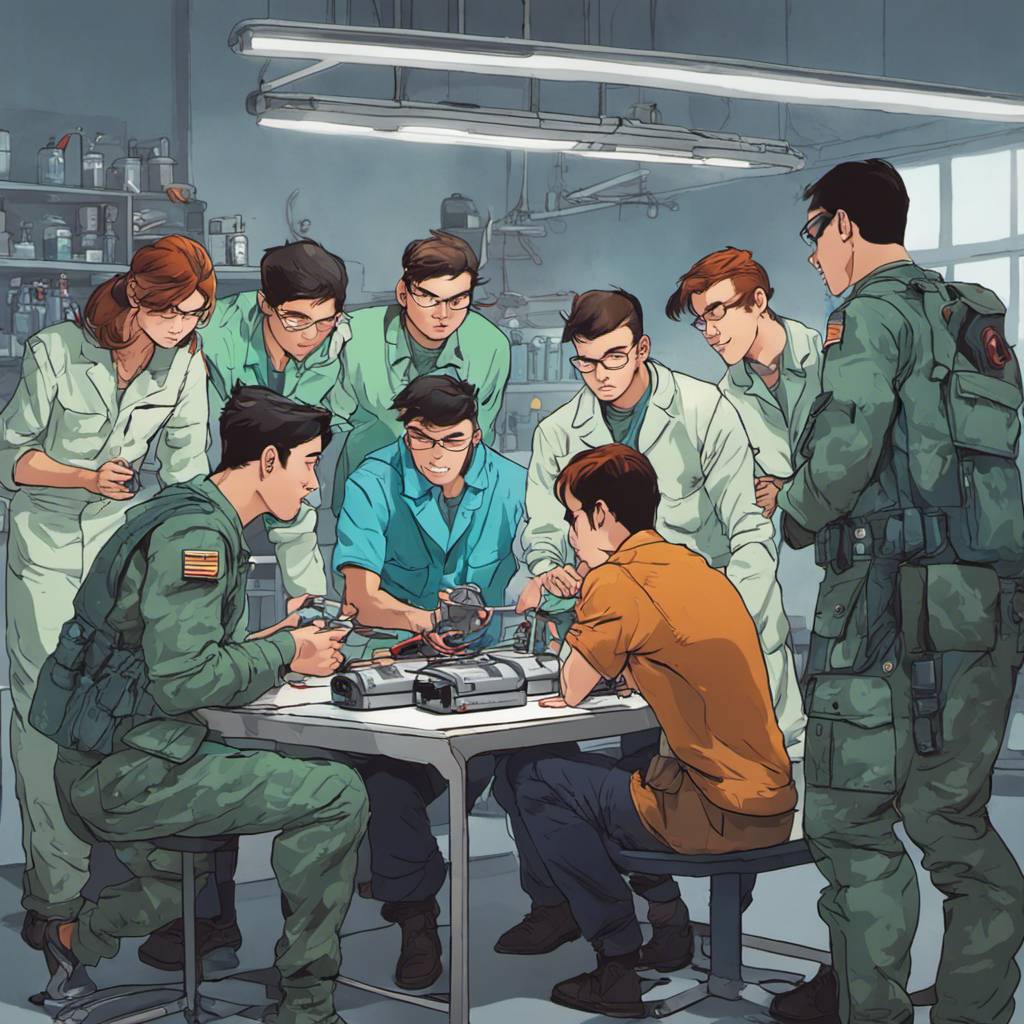In a groundbreaking development, a team of undergraduate electrical engineering students from the University of West Florida’s Emerald Coast campus have engineered a unique battery charging system designed specifically for soldiers operating in dense jungle environments. The idea was born out of a conversation with the 7th Special Forces Group Innovations team of the United States Army. The army sought the expertise of Dr. Thomas Gilbar, chair and lecturer for electrical and computer engineering at UWF’s Emerald Coast campus, to collaborate on innovative solutions to some of the challenges faced by their units.
The primary problem that needed addressing was the development of a more efficient method of charging batteries for the electronic systems soldiers carry in their rucksacks. The army is keen on finding ways to decrease the weight of these packs as soldiers navigate through dense forests.
Eamon Anderson, a student and former member of the 7th Special Forces Group, had firsthand experience with the issue at hand. He explained that carrying extra batteries always posed a significant challenge. The additional weight in rucksacks not only complicates planning but also contributes to short and long-term injuries among soldiers.
Together with fellow students Daniel Buraczynski and Paul Ruth, Anderson worked under the guidance of faculty mentor Dr. Jeff McGuirk over two semesters in 2022 and 2023. They successfully designed an innovative solution that not only reduced battery charging time and prolonged battery life but also decreased the overall weight of the backpacks. The technology they developed harnesses the power generated by the soldiers’ movements as they traverse through the jungle to charge the systems.
Dr. Thomas Gilbar expressed his pride in their accomplishment, stating, “At UWF, we strive to foster collaborative relationships with our local industries and military bases to bring such real-world problems to our students. These partnerships are mutually beneficial as they prepare our students for successful careers post-graduation while also providing our local partners with access to fresh, creative thinking from budding engineers.”
The 7th Special Forces Group has enthusiastically embraced the system. The student team, who recently graduated with their Bachelor of Science in Electrical Engineering degrees, is currently fine-tuning the system before it undergoes Army range testing.
Reflecting on his experience, Anderson said that this project allowed him to apply his knowledge gained from the engineering program at UWF, where they learn things in blocks as they progress through the courses. He concluded, “The project allowed us to encompass the full scope of our learning at UWF and see how it all comes together.”
This novel solution is a testament to the potential of integrating electronics and programming languages in innovative ways to solve real-world problems. It also underscores the importance of practical coding experience for students, as it prepares them for professional endeavors in the ever-evolving field of technology. As technology continues to advance at a rapid pace, such innovative solutions will become increasingly crucial in various sectors, including the military.
